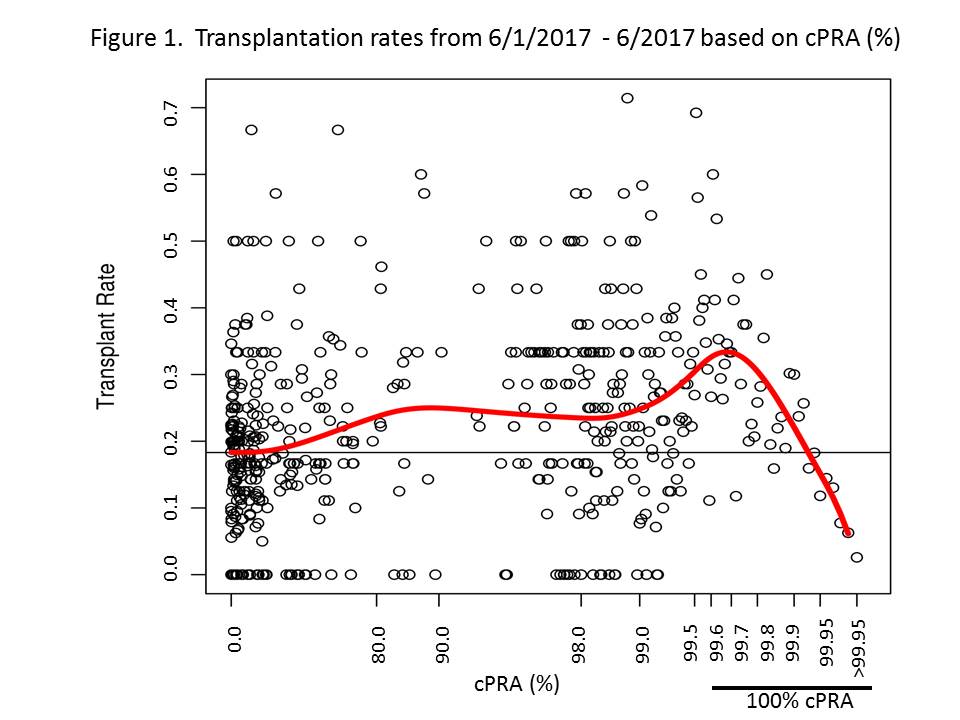Transplantation of the Highly Sensitized Renal Transplant Candidate in the Post-KAS Era: Who is Left Out?
Mayo Clinic, Rochester, MN
Meeting: 2019 American Transplant Congress
Abstract number: A226
Keywords: Kidney transplantation, Mechnical assistance, Panel reactive antibodies, Sensitization
Session Information
Session Name: Poster Session A: Kidney Deceased Donor Allocation
Session Type: Poster Session
Date: Saturday, June 1, 2019
Session Time: 5:30pm-7:30pm
 Presentation Time: 5:30pm-7:30pm
Presentation Time: 5:30pm-7:30pm
Location: Hall C & D
*Purpose: Highly sensitized kidney transplant candidates are given high priority under the new kidney allocation system (KAS), but it is unclear if all sensitized candidates are served equally. Our aim was to evaluate transplantation rates by calculated panel reactive antibody (cPRA) 1.5-2.5 years after KAS was implemented to assess which candidates are still waiting.
*Methods: We analyzed data extracted from the United Network for Organ Sharing Standard Transplant Analysis and Research from 6/1/2016-6/1/2017.
*Results: Transplantation rates were generally similar across different cPRAs (16-25%), except for the 2204 candidates with a greater than 99.9% cPRA. Only 9.7%(213) of these candidates were transplanted (Figure 1). The rate of transplantation was even less in Black candidates as only 5.2%(54) of these candidates received a transplant. With increasing sensitization, the percentage of living donor transplants deceased and the actual number of transplants facilitated through kidney paired donation was small. In the 100% cPRA group, 97.2%(513) of transplants were from a deceased donor. Additionally, in the 100% cPRA group, only 7 transplants were facilitated through kidney paired donation, which was 1.3% of all transplants in that group. On 10/1/2017, nearly 3 years after KAS, 3.9%(2412) of actively waitlisted candidates had a 99.9% cPRA or greater and 53.7%(1295) of these had more than 5 years of waiting time.
*Conclusions: Transplantation rates of highly-sensitized candidates has improved with KAS, but not all candidates have benefited. We suggest that candidates with a cPRA greater than 99.9% or sensitized candidates with prolonged waiting time and living donor, might benefit from more aggressive approaches to transplantation including desensitization.
To cite this abstract in AMA style:
Schinstock C, Smith B, Bentall A, Stegall M. Transplantation of the Highly Sensitized Renal Transplant Candidate in the Post-KAS Era: Who is Left Out? [abstract]. Am J Transplant. 2019; 19 (suppl 3). https://atcmeetingabstracts.com/abstract/transplantation-of-the-highly-sensitized-renal-transplant-candidate-in-the-post-kas-era-who-is-left-out/. Accessed February 18, 2026.« Back to 2019 American Transplant Congress

